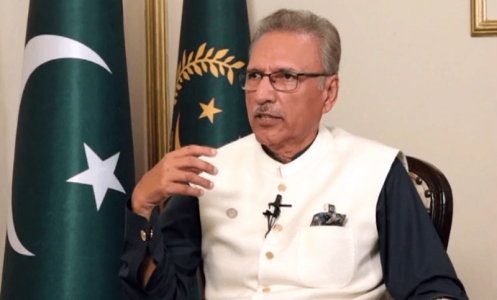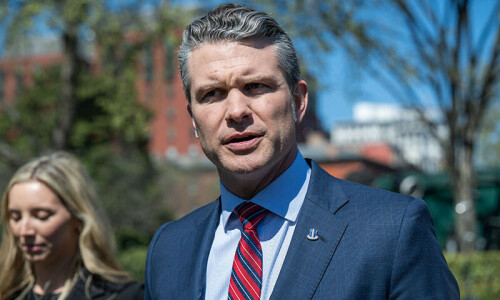ISLAMABAD: Chief of Army Staff Gen Qamar Bajwa on Friday called for national coherence and rule of law as he confirmed that he would be bidding a farewell to arms in a few weeks.
Speaking at the National Security Workshop at National Defence University, Gen Bajwa said he would be retiring in about five weeks’ time.
During a visit to Washington earlier this month, Gen Bajwa had announced that he would step down at the end of November.
In a reference to the political turmoil in the country, Gen Bajwa told participants of the workshop that the army had decided to remain apolitical. In recent months, the army has continued to face the allegations of political interference despite pledges by its leadership that it would stay out of politics.
In his remarks, Gen Bajwa also highlighted the need for “national cohesion and unified response” for protecting and promoting national interest and ensuring progress.
He recalled the military’s successes against terrorism. Operation Raddul Fasaad was launched in February 2017, months after Gen Bajwa assumed command, to sustain the progress achieved through successive counter-terrorism operations. Terrorism incidents sharply decreased afterwards.
The outgoing chief said that peace and stability can only be achieved if rule of law and state’s writ is established.
However, lately a resurgence is being witnessed in Khyber Pakhtunkhwa and over 400 people, mostly security personnel, have lost their lives in terrorist attacks this year.
Read: Why and how is the TTP resurfacing in Swat?
Succession
Gen Bajwa will be retiring by the end of November after commanding the army for six years. He was appointed army chief in 2016 for a three-year tenure, which was extended by three years in after parliament legislated on the tenures of services chiefs on the orders of the Supreme Court.
The legislation had fixed 64 years as the retirement age for services chiefs. Gen Bajwa is 61 years old and can technically stay on for another term, if the government agrees to it. This possibility has led to endless speculation that he may continue in the position.
It is expected that the process for the selection of his successor would begin by next week. Influential quarters within the government have advised the prime minister to expedite the appointment process as they suspect that unrest in the country was linked to the upcoming change in command, according to a member of the federal cabinet.
As per the process, General Headquarters would route a panel of the five senior most lieutenant generals through defence ministry to Prime Minister Shehbaz Sharif for appointing the next army chief.
According to Article 243 (3) of the Constitution, the president would appoint the services chiefs on the recommendation of the prime minister.
Besides the appointment of the COAS, the position of chairman Joint Chiefs of Staff Committee will also fall vacant on Nov 27. All eyes, however, are on who would be the next army chief because of the history of this office overshadowing political landscape.
The senior most generals, who could possibly be considered for elevation, are Lt Gen Asim Munir (currently Quarter Master General), Lt Gen Sahir Shamshad Mirza (Commander, 10 Corps), Lt Gen Azhar Abbas (Chief of General Staff), Lt Gen Nauman Mehmood (President, NDU), Lt Gen Faiz Hamid (Commander, Bahawalpur Corps), and Lt Gen Mohammad Amir (Commander, Gujranwala Corps).
Published in Dawn, October 22th, 2022

















































